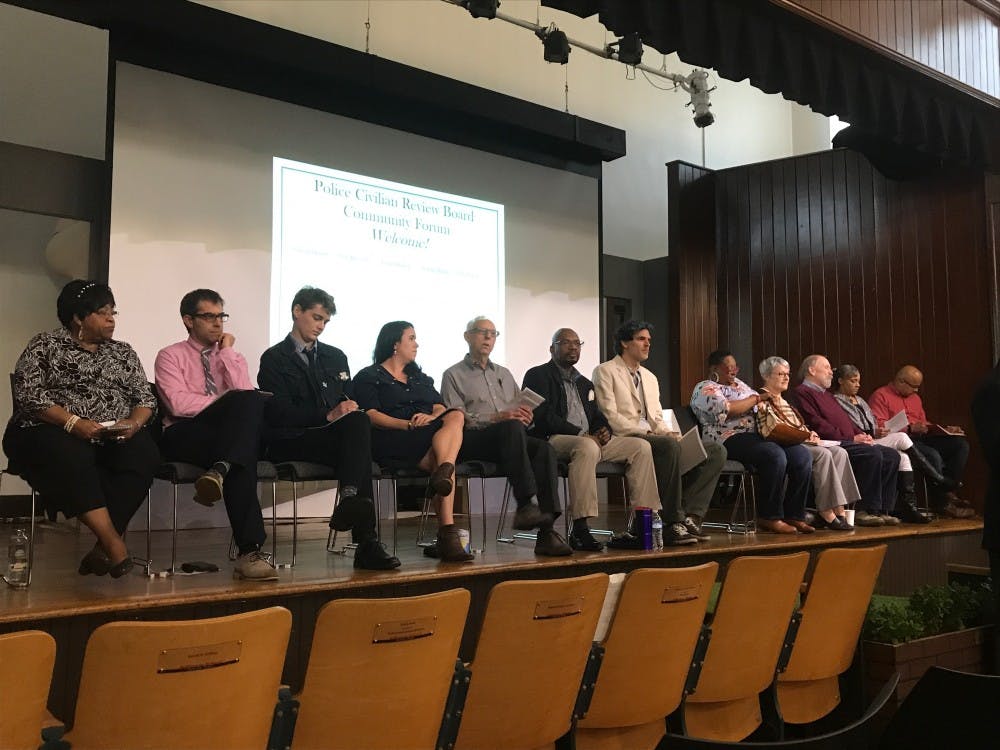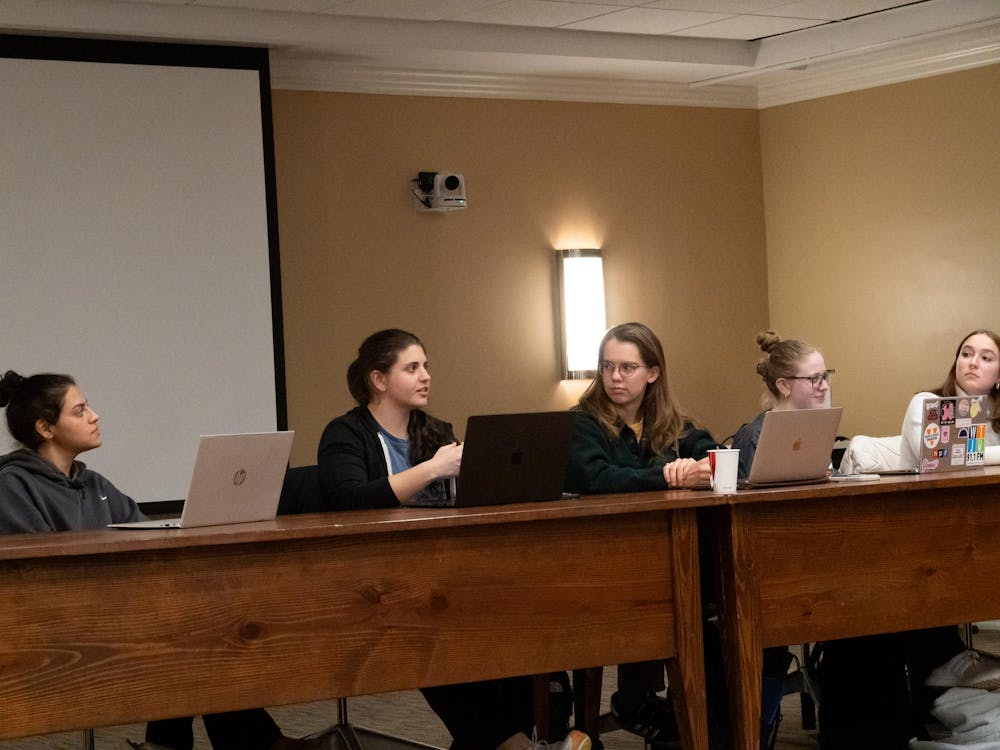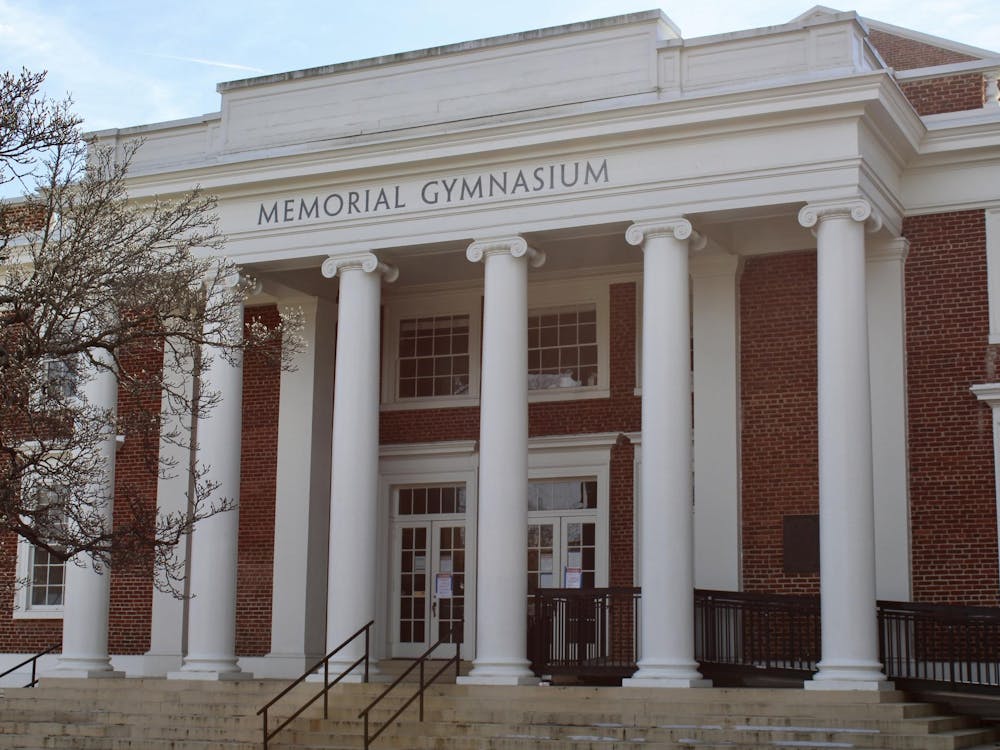The City of Charlottesville hosted a forum at the Jefferson School African American Heritage Center last Tuesday to allow for 13 candidates seeking membership on a seven-member Police Civilian Review Board to answer questions from community members.
Of the 17 city residents who have applied for board membership, four have withdrawn their applications. A number of candidates who were not residents of the City of Charlottesville were also recently removed from consideration by City Council.
An online survey will be live until May 24 for community members to submit their suggestions for whom they would would like City Council to appoint. The appointment process will occur at the body’s June 4 meeting.
The aim of the board is to encourage independence, accountability and transparency within the police department to build trust, relationships and civilian engagement with the Charlottesville community. The board also seeks to better reflect the interests of the community as a whole, including members of minority and low-income communities.
The board will replace the preexisting Police Citizen’s Advisory Panel which has existed since 2008 in Charlottesville. However, following the events on Aug. 11 and 12, the effectiveness of the panel was brought into question.
At a Council meeting in November 2017, David Simmons, chair of the advisory panel, claimed that the ineffectiveness of the board was not due to negligence on the panel’s part but rather a lack of support and resources from Council.
“I believe if given the right tools we [the advisory panel] would be able to reach those same goals,” Simmons said. “We would not be an adversarial entity with our law enforcement agencies. I feel that the civilian review board will be adversarial and create more distrust, less transparency within the community.”
The forum was co-moderated by local mediation consultant Robert Garrity and local human resources professional Mitsuko Clemmons-Nazeer. All 13 candidates were allowed two-minute opening statements before the panel was opened up for questions.
Many of the candidates cited the white nationalist rallies of Aug. 11 and 12 as a motivating factor for applying to the board. The past few months since the white nationalist demonstrations of August have been a time of controversy for the City’s police department. In particular, the law enforcement management and response to the demonstrations became the subject of much public criticism in the local community.
In an independent review of the City’s management of and response to the events of August conducted by former U.S. Attorney Tim Heaphy, the CPD was heavily criticized for its ineffective and inefficient management of white nationalist demonstrators and counter-protesters. In response to these events, City Council approved the development of the Civilian Review Board in November 2017 to increase accountability and transparency of the police department.
James Shea Jr., a resident of Charlottesville for over 38 years and long-time social activist, said the CPD failed to uphold its duty in August.
“They simply failed to fulfill their responsibility to maintain public order, life and property,” Shea Jr. said. “The public has an absolute right to demand reasonable, credible assurances from the officials of the police department so that this pitiful behavior will not repeat itself in the future.”
Guillermo Ubilla — a local artist who said he became politically active after the election of President Donald Trump — said that the board will need to focus on maintaining transparency in the police department and between itself and Council to be effective.
“I think the board really needs to focus on transparency,” Ubilla said. “Without transparency we’re not going to have trust, and without trust were not going to make changes. This board also needs to have some teeth to it, this can't be just the advisory panel that we had in the late 1990s. Whether that is investigative powers, subpoena powers to hire personnel … without authority were not going to make any change.”
Mayor Nikuyah Walker was in the audience at the forum and said in an interview with The Cavalier Daily following the event that the board needed enforcement power to be effective.
“The enforcement power piece is key to being able to make sure that if there are wrongdoings within the police department, that they can make recommendations to the police and other supervisors within the department about what needs to happen,” Walker said. “That is very different from anything we've had here … [and] hopefully that will be included in the bylaws that they [the board members] come up with.”
Applicant Katrina Turner, a member of the local chapter of Black Lives Matter, said she has witnessed racial inequality firsthand during the assault of her son who she said was brutally arrested after calling the police to report being abused by his girlfriend.
Turner said she and her son filed a report after the incident but added that it fell on deaf ears. She hopes being on the board will force officers to be held accountable for their actions and treat all community members equally.
Turner said that when police personnel patrol low income neighborhoods, they often make false judgements based on race and socioeconomic status.
“When the police enter these neighborhoods, they take the job of the judge and the jury,” Turner said. “They see hoods, and thugs … but that's just where we are able to afford to live. Just because we live in this neighborhood does not mean that we’re thugs, and does not mean that we need to be treated in that manner — and when we call for help, that's what we should get.”
Don Gathers — a local activist and former chair of the now-defunct Blue Ribbon Commission on Race, Memorials and Public Spaces in Charlottesville — said that police personnel need to be more intimately embedded into the community.
“Their first interaction should be out seen walking through the community in a way that makes the community feel safe and comfortable,” Gathers said. “You don't want your first interaction with a police officer when he’s coming to put handcuffs on you — we need to get to the point where the police are known … where we can develop some level of trust.”
Local civil rights attorney Jeff Fogel spoke extensively on stop-and-frisk practices in Charlottesville.
According to the 2017 stop-and-frisk statistics released by the Charlottesville Police Department, 73 percent of the individuals that were subject to the practice were black.
Panelists agreed that it would be the role of the board to establish criteria as to what actions justify a stop and frisk encounter, as well as force the CPD to release all of their data to understand what causes these racial biases.
Currently, officers must be able to justify ‘reasonable suspicion’ of an individual to superiors for conducting stop and frisk searches.
Fogel said that the problem of racialized policing goes beyond the police department itself.
“The police are here to enforce the current social order,” Fogel said. “And that's what they do. You can't just take it out of the police because they're actually doing their job. There are forces behind the police that we have to get at as well before before we really change this paradigm of relationship ... it’s my hope that this board can also bring truth to the process and point out where the problem lies beyond the police.”





